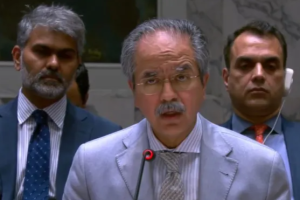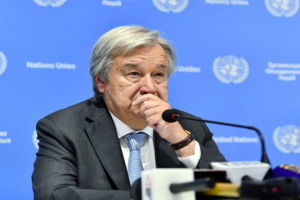UK Chancellor Rishi Sunak has hailed a series of “ambitious” new UK-India initiatives across investment, trade, infrastructure, sustainable finance and research as he highlighted the role to be played by the UK”s capital markets in India”s infrastructure development.
The Indian-origin finance minister, addressing the UK-India Investing for Growth Forum on the sidelines of the UK-India 10th Economic and Financial Dialogue (EFD) on Wednesday, said that while a new Partnership on Infrastructure Policy and Financing will help catalyse private finance flows into India”s ambitious National Infrastructure Pipeline (NIP), a new Sustainable Finance Forum would help green up the financial partnership between the two countries.
According to a high-level task force, India”s NIP has projected infrastructure investment of Rs 111 trillion during 2020-25.
“Sustainable finance provides a significant opportunity for the UK-India relationship. In the next 20 years, India is estimated to require USD 4.5 trillion of investment in sustainable infrastructure. The UK, with our deep and liquid capital markets, can play an enormous role in providing private finance to meet that need,” said Sunak, in a virtual address to the summit.
“Building on the unique strengths each country brings to our partnership – the UK”s deep and liquid capital markets and India”s extraordinary economic dynamism – together we can build an ambitious and exciting economic partnership and through our close and cooperative working relationship, show the way to global recovery,” he said.
The address followed his ministerial-level EFD dialogue, also held virtually with finance minister Nirmala Sitharaman, earlier on Wednesday during which both sides concluded a broad range of agreements.
A new annual Financial Markets Dialogue between India and the UK to remove regulatory and market access barriers for British and Indian firms, is set to kick start with a meeting early next year.
It will be led by senior officials from the finance ministries of both countries and include the participation of financial regulators and private sector players.
“India holds huge potential for investors, and the Indian government”s ambitious vision for infrastructure financing is a massive opportunity to drive the post-pandemic global economy forwards,” said William Russell, the Lord Mayor of London.
“London has deep expertise in sustainable infrastructure investment, and this event is a huge opportunity to mobilise capital ahead of COP26,” he said, in reference to the UK”s presidency of the UN climate summit COP26 scheduled for November 2021.
A new strategic partnership to accelerate the development of Gujarat International Finance Tec (GIFT) City as an international financial centre, including regulatory capacity building support for the new International Financial Services Centre Authority, was also flagged as a means to drive international capital flows from the City of London to India.
“The UK is home to many world-class institutions from all stages of the investment lifecycle, from project conception to delivery and advisory. It is vital that we continue to leverage that expertise enabling us to collaborate ever more closely as we look ahead to COP26 in the UK next year,” said Catherine McGuinness, Policy Chair at the City of London Corporation.
The corporation, the governing body of the financial hub of the UK capital known as the Square Mile, said the private sector led UK-India Sustainable Finance Working Group, established earlier with the Federation of Indian Chambers of Commerce and Industry (FICCI), is already working on reducing barriers to sustainable investment.
“Much needs to be done to unlock capital for sustainable growth, and together with the members of our working group, we hope to take practical actions in the coming 12 months to accelerate investment into India and deliver progress ahead of COP26,” said the co-chairs of the working group – Hitendra Dave, Head of Global Banking and Markets, HSBC India, and Richard Abel, MD, UK Climate Investments.
The UK government highlighted that since its first EFD with India in 2007, bilateral trade between the two countries has more than doubled to nearly GBP 24 billion in 2019.

























Add Comment